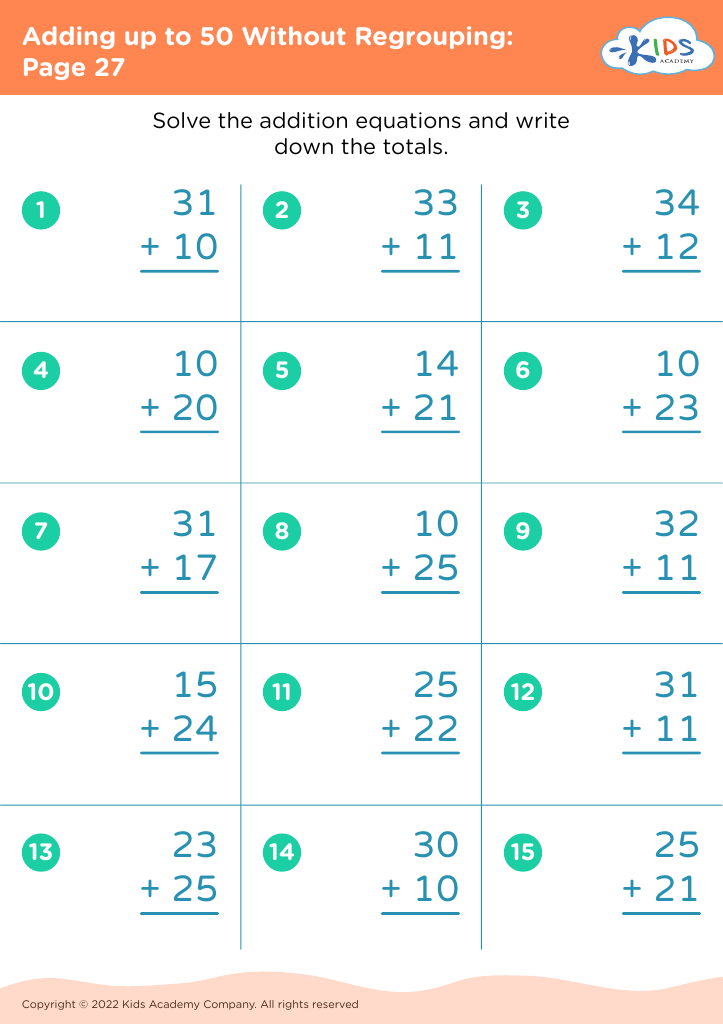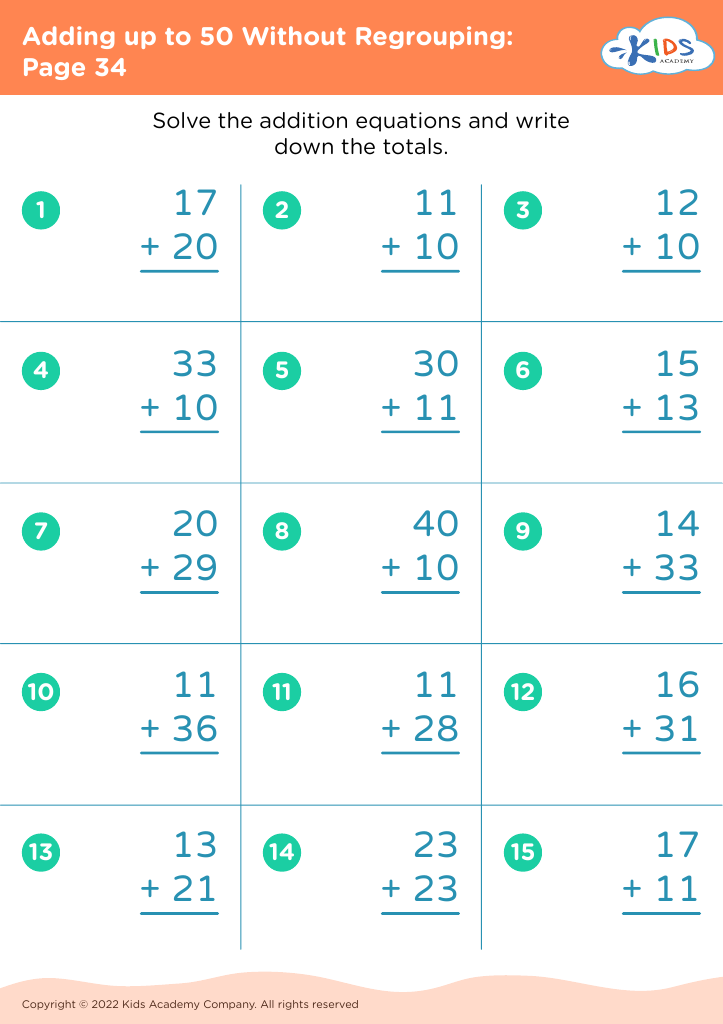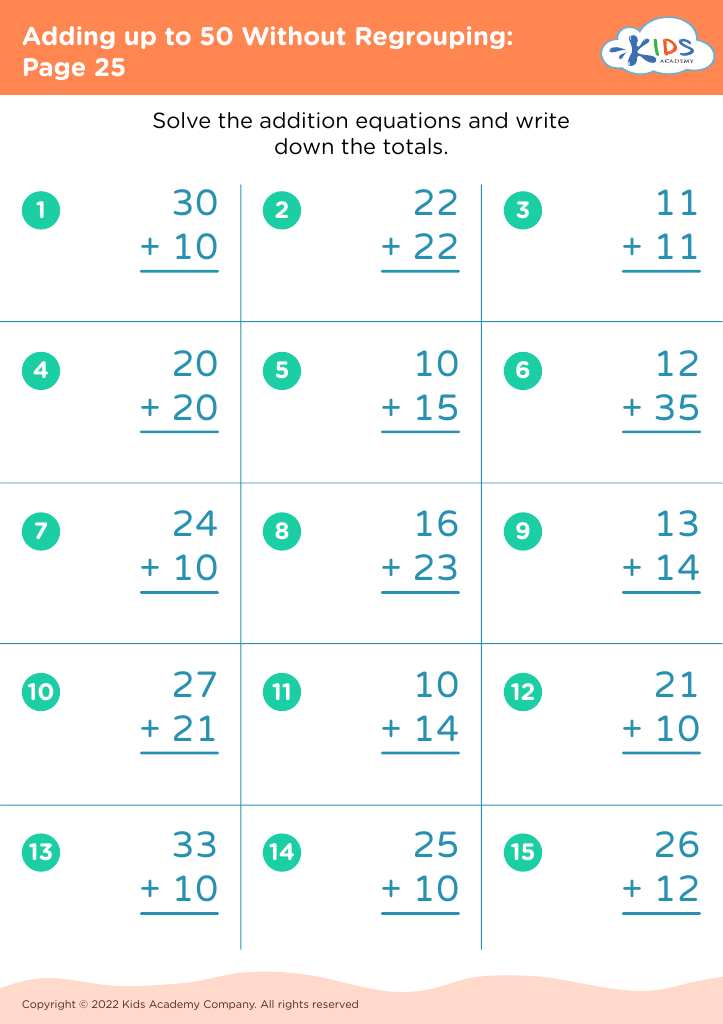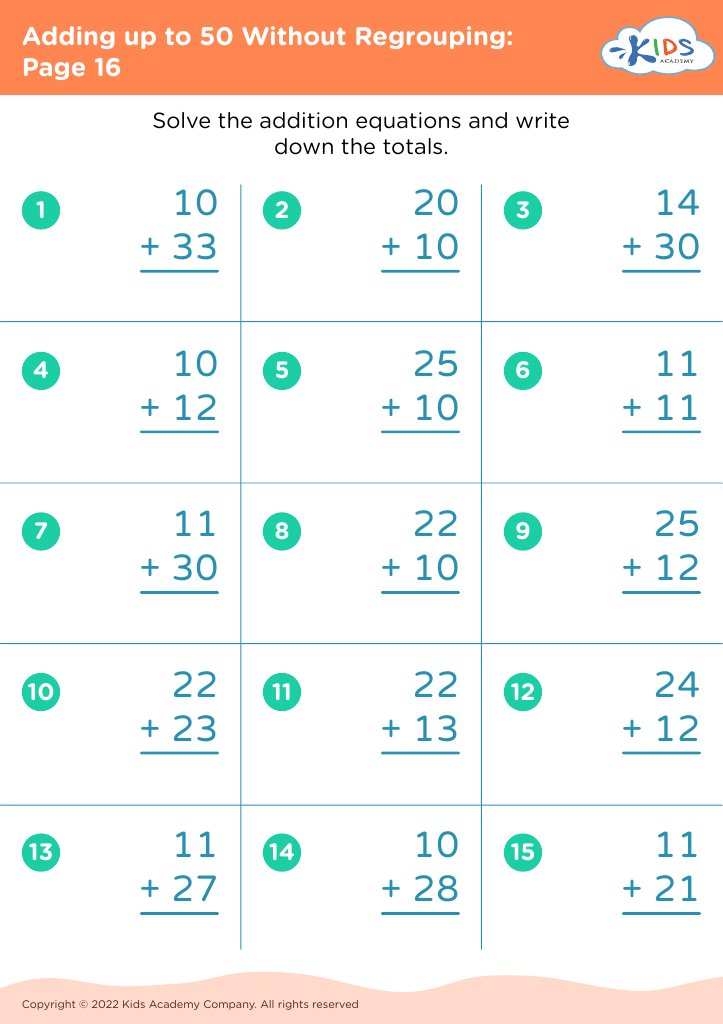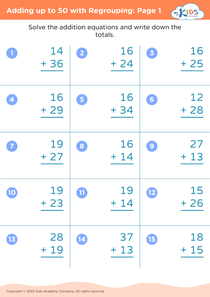Comparing Fractions Adding up to 50 Without Regrouping Worksheets for Ages 4-7
7 filtered results
-
From - To
Boost your child's math skills with our Comparing Fractions Adding up to 50 Without Regrouping Worksheets for Ages 4-7. Designed for young learners, these engaging worksheets help build a strong foundation in comparing fractions and addition up to 50 without the complexity of regrouping. Perfect for classroom practice or homework, they feature fun and colorful exercises tailored to keep kids focused and motivated. With a variety of problems that reinforce crucial learning skills, our worksheets make mastering basic math concepts enjoyable. Set your young mathematicians up for success with these expertly crafted resources!
Comparing fractions and learning to perform simple addition are foundational math skills that benefit young children in numerous ways, and focusing on these for ages 4-7 is vital for their cognitive development. Parents and teachers should understand that this age range is a critical period for cognitive and mathematical growth. At this stage, children are highly receptive to new concepts, and their brains are primed for developing skills like pattern recognition, counting, and basic arithmetic.
Teaching them how to compare fractions and add up to 50 without regrouping fosters number sense, ensuring they grasp the idea that numbers represent quantities and can be divided into smaller, meaningful parts. These activities also introduce them to the concept of equality and order, important principles in both math and everyday decision-making.
Additionally, these early math exercises lay the groundwork for more complex arithmetic and problem-solving skills they will encounter later in their education. They also promote confidence and a positive attitude towards math, which can motivate children to tackle more challenging subjects as they grow. Therefore, helping children understand these fundamental concepts not only sets a strong academic foundation but also supports their overall intellectual development and future success in various fields.
